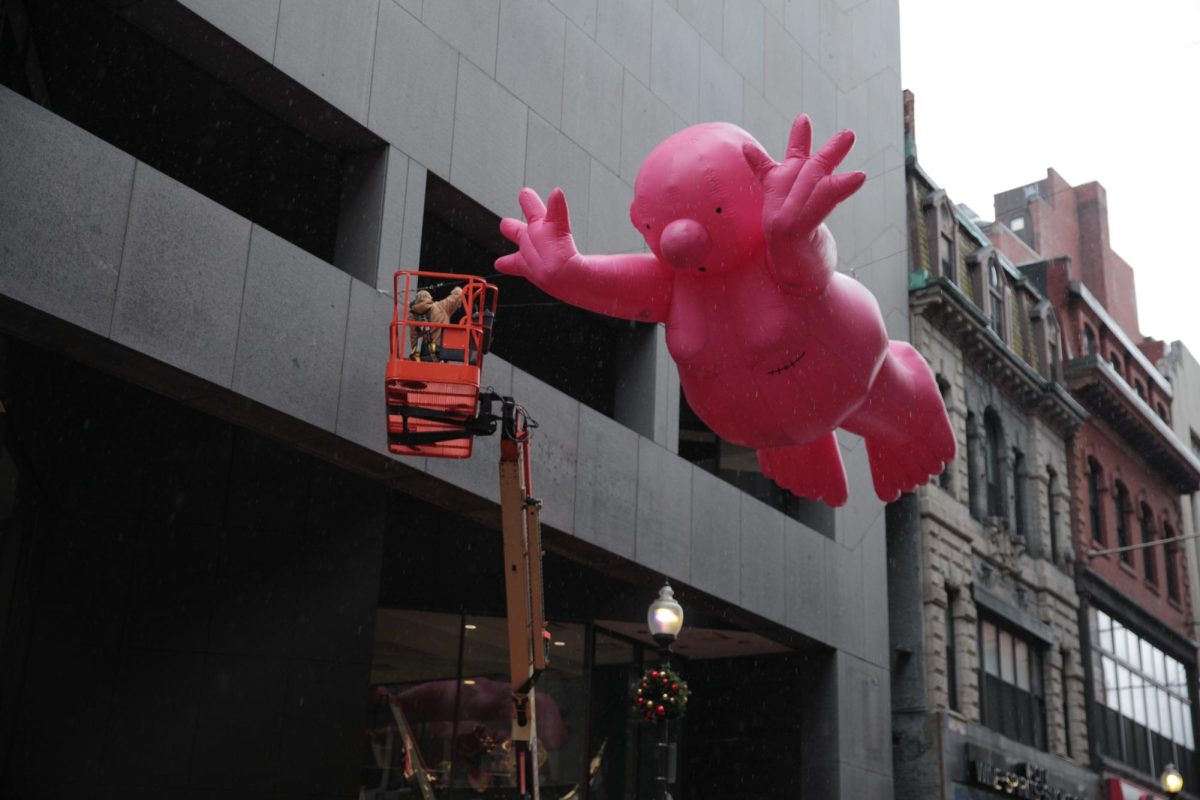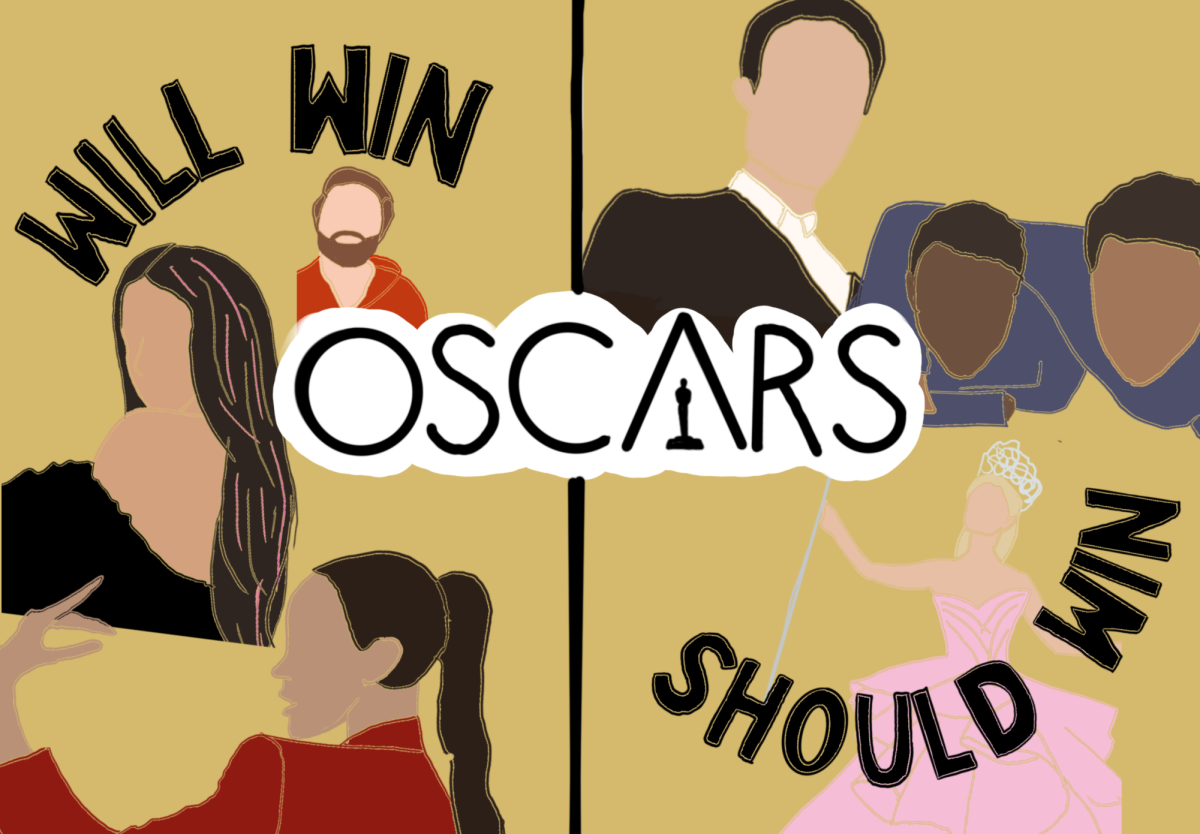
By Kailyn Gaines, News Correspondent
“1st rule: If it’s your first lunch at Lunch Beat, you have to dance.
2nd rule: If it’s your second, third or fourth time lunch at Lunch Beat, you have to dance.
3rd rule: If you are getting too tired to actually dance at Lunch Beat, please have your lunch at some other place.”
These are three of the ten rules of Lunch Beat, a foreign invention designed to get people out and on their feet for an hour during lunch breaks.
On Tuesday, Oct. 22 at noon, while many of their colleagues were taking a normal lunch break, over 300 Boston area residents from all walks of professional life gathered in the Roundarch Isobar office in South Station for the third installment of Lunch Beat Boston, a one hour lunchtime dance club experience.
The Lunch Beat series was founded in June 2010 by Molly Ränge, who hosted the first party in Stockholm, Sweden. The concept picked up speed and grew into an international movement, currently with parties in 62 cities across five continents. While different cities adapt the events to cater to their differing populations, all remain true to Ränge’s manifesto, which lists rules like the above, as well as “At Lunch Beat, everyone present is your dance partner” and “You don’t talk about your job at Lunch Beat.”
It was this that inspired Dmitri Gunn, an entrepreneur and start-up mentor and the founder of Lunch Beat Boston, to bring the experience to Boston.
“I loved the sort of tongue-in-cheek fight club kind of rules that [Ränge] created around the event framework,” Gunn said. “I sort of circle the room like a benevolent shark forcing people onto the dance floor.”
While the majority of partiers are mid to late twenties, and men and women are usually almost equally represented, for Gunn, one of the hallmarks of Lunch Beat Boston is the socio-economic diversity of the participants.
“You get a really interesting cross-section of Boston and Cambridge,” he said. “Everything from college students to managing directors of venture capital firms … all there for this moment in time where you’re not aware of who you are and you leave your burdens and successes at the door and you’re just a participant.”
Tuesday’s DJ, Jay Batson, a friend of Gunn’s who also works mentoring start-ups and fellow electronic dance music (EDM) enthusiasts, got involved with Lunch Beat because he saw it as “a good idea to bring some very interesting and fun work-cultural things to Boston.”
After paying a $10 entrance fee, guests were provided with a bag lunch and water bottle and directed into the office space, which was transformed with blacked out windows, lasers, light shows and music.
“Within 10 to 15 minutes the entire place was up and dancing, and it was basically a daytime nightclub experience,” Batson said. “Everyone was out there dancing for a whole hour, arms in the air having a good time.”
Relying solely on marketing through Twitter, Facebook and word of mouth, Lunch Beat’s best publicity arguably comes from its participants after they return to their offices.
“We send everyone back sweaty so their friends can ask ‘What the heck did you do during lunch?’ and they say ‘Well, I danced my head off,’” Batson said.
Gunn echoed this idea.
“We basically shut down departments for an hour. You come back, you have a huge grin on your face, you’re sweating buckets and your co-workers are like ‘What the hell happened to you?’ Responses range from ‘I was at an underground dance party’ to ‘You wouldn’t believe it if I told you in a million years.’”
Though Lunch Beat exists in some format in seven cities in the United States including New York and Portland, it is by far most successful and well received in Boston, according to the Lunch Beat Boston team, reflecting not only a community that needs an outlet like this but that enjoys the opportunity to let loose.
“The community sorely needs it,” Gunn said. “It’s very structured, very formal, there’s lots of panels, you’re painfully aware of your social status within the pecking order, and I’ve seen it now three times, everyone from college students to people with billions of dollars of capital at their disposal and they have the same exact sort of completely democratized, absurdly fun experience.”
Gunn argues the Lunch Beat Boston phenomenon reveals something truer about the Boston community as a whole, and hopes the country takes notice.
“We actually do some really innovative stuff here, and we’re not as constrained or conflicted or sort of puritanical as people think, and we’re getting 200-300 people to come out on their lunch break and dance with not a drop of alcohol in sight, and New York can’t do that, and Miami can’t do that and Los Angeles or San Francisco can’t do that.”









